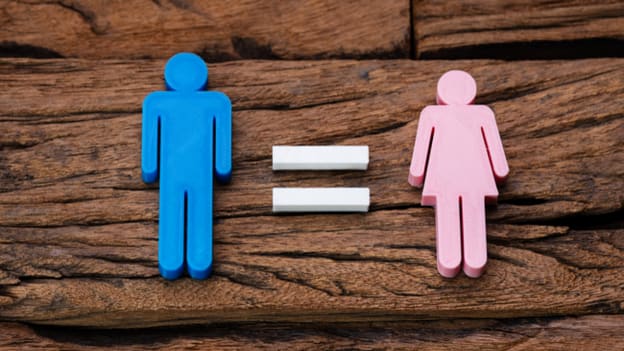What does 2023 hold for gender equality?

The gender gap is still some way to go in workplaces. India has made significant progress in addressing the gender gap and promoting gender diversity in the first two decades of the 21st century. The National Population Policy 2000 included empowering women for health and nutrition as one of its strategic themes, and India has also committed to promoting gender equality and empowering women through the Millennium Development Goals (MDG) and Sustainable Development Goals (SDG). However, there is still work to be done in order to fully address the gender gap and promote gender diversity in India.
The Global Gender Gap Index 2022 ranks India at 135 out of 146 countries. While this is an improvement from 2021, when India was ranked 140 out of 156 countries, the rank shows that there is still much work to be done. The Index measures various aspects of gender equality, and India fares poorly in terms of economic participation, which includes the percentage of women in the workforce and wage equality for similar work, ranking 143 out of 146 countries.
The pandemic impact
The pandemic that brought the world to a halt also led to the exacerbation of the gender gap by increasing the pressure on working mothers. However, the latest Women in the Workplace 2022 study shows that despite the Covid challenges, women made important gains in representation at work, especially in leadership roles. Women rose to the occasion, with women leaders supporting their co-workers and working to advance efforts to increase diversity, equity, and inclusion in the workplace.
The Digital revolution is a game-changer in gender equality
Among the factors that are helping to bridge the gender gap is the rise in digitalisation that took place in response to the extended lockdowns during the pandemic. The conventional approach to bridging the gender gap has always looked to strategies and measures that compensate for women’s historical and social disadvantages that prevent them from otherwise operating on a level playing field. Digital transformation now provides new avenues for the economic empowerment of women and can help contribute to greater gender equality.
The rapid increase in digitalisation is a unique opportunity to expand the scope of a flexible working environment at scale. However, gender biases in technology have led to an underrepresentation of women in technical areas and organisations must help bridge the digital gender divide. Organisations must seize this opportunity to allow women to access knowledge and information to build a more inclusive, digital world. For women to fully benefit from the digital revolution, organisations must address any digital skill gaps that may exist by providing upskilling opportunities.
From gender gap to gender equality
As we stand on the threshold of a new year, it is the right time to look to evaluate what businesses should do to foster gender equality and build a culture of opportunity and fairness in the workplace. We must remember that gender equality means equal rights and equal access to resources and opportunities for both women and men. Thinking of equity at the broader level through sensitisation to the issue and proactive solutions will help smoothen the path to gender equity.
In big organisations, the needs of different employee pools differ and have to be accordingly addressed. The same is the case even in gender representation. Support needed by employees in the factory vis-à-vis those needed by those in the head office differs and benefits needs to be customised based on the need and challenges of the different working environment.
Gender agnostic benefits
The trend towards being gender agnostic for various roles opens the canvas beyond just gender with a holistic view that encompasses merit while ensuring all employees are equally cared for. The movement is towards ensuring gender-agnostic policies that focus on health and wellbeing in a flexible and caring working environment. This includes situations such as paternity leave, which acknowledges the role of the male in child care and helps in countering stereotypes and preconceived ideas about specific roles played by women and men.
Offering benefits as a choice also gives greater flexibility to the employees, both female, and male. Support required by an employee in a metro city as against an employee in a small town will be different. Increasing the visibility of the best work practices and structural change towards gender equality will help in mainstreaming a gender-equal approach in all policies and measures taken by an organisation. It will encourage women to enter male-dominated fields and support working mothers with career progression.
Readying for the digital future of work
The digital revolution will continue to unfold with the nature and content of jobs evolving with changes in required skills. The digital future of work is set to provide further opportunities for women to participate with flexible schedules and with greater geographical mobility including from home. This will in turn help women and men combine work and family duties.
A knowledge economy will require employees to be equipped with a wider range of skills, which encompass problem-solving and interpersonal skills. Women must not be left behind in a digitally intensive workforce and must ensure they have the skills required to succeed in this new technological paradigm. Strengthening women’s skills can play an important role in narrowing the gender gap.
The post-pandemic world has allowed us to create a supportive environment for gender equality through care and empathy. As Sheryl Sandberg says in ‘Lean In: Women, Work, and the Will to Lead’, “We must raise both the ceiling and the floor.” It is only then that we can free women’s access to resources and opportunities to make Gender Equality a reality in 2023.
















